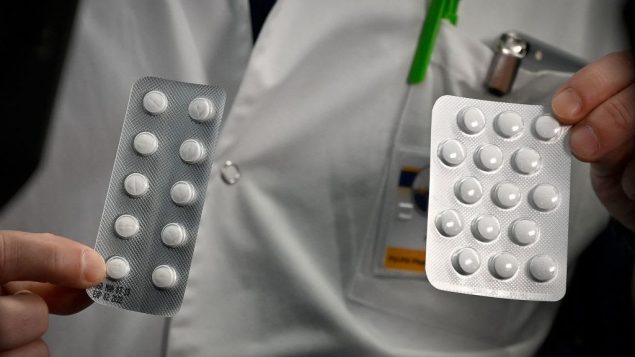Quebec’s health institute has warned against using hydroxychloroquine and chloroquine for patients who are suffering from a COVID-19, according to a statement released on Sunday.
The Institut National d’excellence en santé et en service sociaux, or INESSS, said that despite some encouraging results from clinical trials on a small cohort of patients, current available data does not support the general use of these drugs to treat all patients with COVID-19.
Hydroxychloroquine is already used to treat arthritis and lupus, and chloroquine is used to prevent and treat malaria.
In an interview with CBC News’ Claire Loewen, INESSS direct general Dr. Luc Boileau said that general use of those drugs to treat people with COVID-19 is not possible until more studies and research is conducted.
Boileau added that there needs to be hundreds or thousands of patients involved in those studies.
The INESSS also said that usage of hydroxychloroquine and chloroquine on patients with COVID-19 should be evaluated on a case by case basis, and limited to severe cases.
Currently there are no documented ways of treating COVID-19.
U.S. President Donald Trump claimed in a tweet that using hydroxychloroquine and azithromycin together “have a real chance to be on the biggest game changers in the history of medicine.”
However Canada’s chief public health officer Theresa Tam cautioned against the claims.
“My message is that you should not take medication without the scientific evidence,” Tam said last week. “It can be quite dangerous. These drugs are not without side-effects. In fact, there are quite significant side-effects.”
As of Monday morning, Canada has 6,671 confirmed and presumptive cases of COVID-19 and 67 deaths, according to CBC News.
With files from CBC News, Claire Loewen and Amina Zafar







For reasons beyond our control, and for an undetermined period of time, our comment section is now closed. However, our social networks remain open to your contributions.